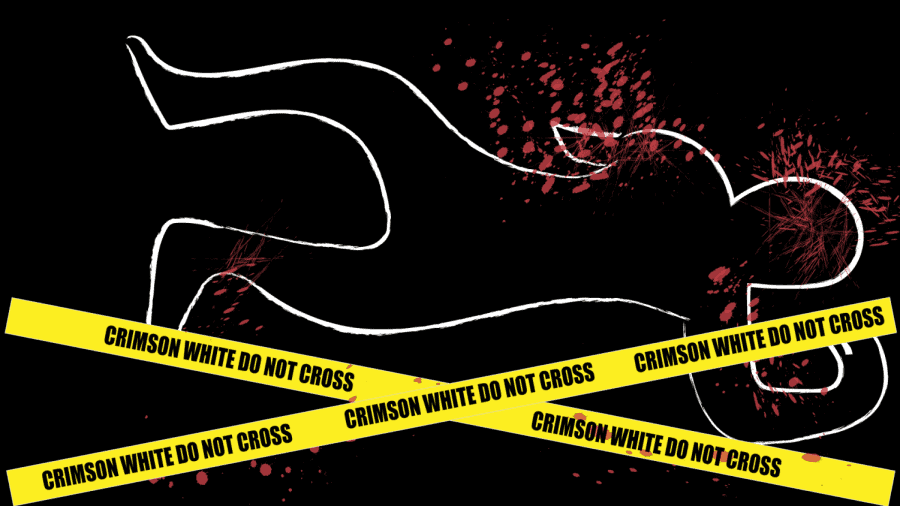Opinion | True crime cases are not entertainment
November 14, 2021
True crime obsessions have existed since the early 17th century. The fascination with topics like murder or kidnapping is not new, but profiting off these real-life cases is. Some people, with the help of platforms like YouTube, podcasting, television shows and books, have recounted these cases to the masses.
Popular cases like JonBenét Ramsey’s murder in 1996 or Elizabeth Smart’s abduction in 2002, along with new cases, continue to be rehashed and speculated about in popular media. Just recently, the country tuned into the Gabby Petito case. Everyone was invested in where she could be and what happened to her.
The fascination with true crime cases has also led to streaming companies and television networks cashing in. Miniseries documentaries, movies and anthology series depicting murders, disappearances and kidnappings have been on the top of people’s watch lists. “Don’t F**k with Cats: Hunting an Internet Killer,” “The Act” and “American Crime Story” are just a few examples.
Despite the great awareness this boom has created, it can also get in the way of professionals working on cases and can skew people’s ability to understand that there are real people behind these crimes.
While examining the cases that pop up throughout time, amatuer investigators often forget that professionals actually work on these cases for a living. Their sole purpose is to try and solve these cases while dealing with possible media or public scrutiny.
The people involved range from police officers and advocates on the ground to professors who focus on teaching criminal justice. UA criminology and criminal justice program director Brittany Gilmer has seen the shift in interest in true crime firsthand.
“As the undergrad director, the vast majority of the students I see say they are interested in the major because of true crime TV shows,” Gilmer said.
Like the students she oversees now, Gilmer became intrigued by criminal justice because she wanted to help others by understanding the inner workings of criminals.
However, the rush true crime enthusiasts get from the idea of solving a case and catching the “bad guy” comes at a price.
The discussion of crime is not new, but the unethical nature of filming yourself and making profit off of it is. It becomes socially acceptable to see these cases as entertainment.
“There is a lack of social cues, and normalization of violence with talking about cases in this way,” Gilmer said.
People sit at home theorizing about who committed the murder or kidnapping, and think it’s just that easy. There are real lives at stake, and the cases that get the most attention are just the surface of the heinous acts being committed.
On top of these cases taking time, very few cases get global attention or full cooperation from law enforcement. In 2020, according to the FBI, over 540,000 people went missing. Most people do not even hear about 5% of those cases.
“I think it is great when the country rallies to try and find a missing person or take an interest in a murder case, but people who look like me do not get that same level of care,” said Jade Thompson, a freshman at Stillman College majoring in criminal justice.
Thousands of black women and women of color go missing every year, and yet most of the cases hardly grab headlines compared to white counterparts. Part of the reason why cases like Gabby Petito’s get the coverage they do is because it is a white woman being victimized. It is easy for people to see white women as victims over women of color. This is even noticeable in the way true crime is handled on platforms.
However, there are positives to the rise of true crime in popular media. Having thousands, possibly millions of eyes looking out for the same case can also help solve or find new clues to stagnant cases.
Many of the YouTubers who focus on true crime stories use their platforms to raise awareness and money for the families of victims.
“I think as long as you are being respectful, there is an ethical way to consume these cases and even help,” said UAB senior and computer science major Megan Taylor.
Taylor is an avid listener of true crime podcasts, and she has parlayed her interest into a minor in cyber criminology.
It is important to remember above all else that there are real victims involved. How these cases are covered and spoken about is also an intricate part in the way society sees crime, especially crimes against women.
Questions? Email the Opinions desk at letters@thecrimsonwhite.com or the Culture desk at culture@thecrimsonwhite.com.








